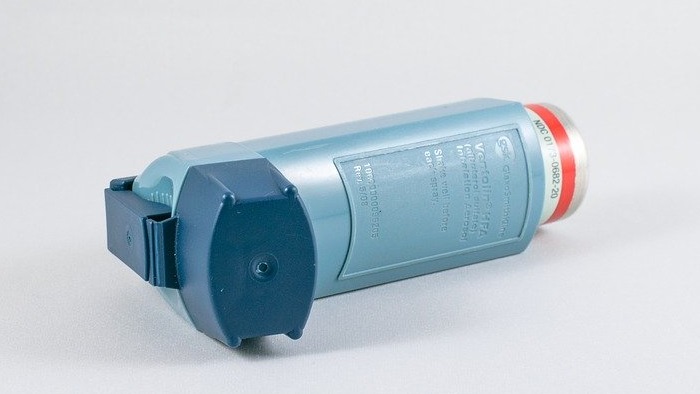
Muscat: Asthma patients who test positive for COVID-19 must not panic, but must report to their nearest health centre, or doctor, to seek immediate medical attention, a physician in the country has said.
On the occasion of World Asthma Day – which falls on May 5 this year – Dr A Basheer, Head of the Department of Internal Medicine and Diabetes, Badr Al Sama’a Hospital, spoke about how asthma patients need to take care of themselves, especially during the COVID-19 pandemic, and the various misconceptions surrounding the disease. He was speaking to TFM’s Evita Louis, in a discussion sponsored by Cipla.
How do asthma patients need to look after themselves during the pandemic?
Just because you are asthmatic does not mean you have an increased chance of testing positive for COVID-19. As with anyone else, asthma patients must also follow hygiene methods. Once you have recovered from COVID, however, you have to be a little more careful.
Never stop your asthma medication: I have seen patients who have done that, and this has worsened their conditions. If you notice COVID symptoms, seek assistance early. It is also recommended to keep a pulse oximeter at home so that you can monitor your oxygen levels. If it does go below 95, go to your doctor or nearest healthcare provider.
If you do test positive and are an asthma patient, first of all, do not panic. Do not stop your medication – consult your physician, and identify any breathing difficulties. Walk a couple of steps and see if you have any trouble breathing. Another advice I would like to provide is to not hesitate from taking the COVID vaccine – the Ministry of Health is specifically providing priority vaccination to asthma patients, because they could develop some complications from the disease.
What are the various causes of asthma?
Asthma is an allergic disease: it is caused by a lot of environmental allergens, such as dust on the floor. Many patients come with asthma caused by pets at home. Aspirin is also very notorious for precipitating asthma. Flu infections can also trigger this, particularly since some people have seasonal asthma: it is seen more during the winters, or when the weather is cloudy.
One of the classical features of asthma is that it is worsened early in the morning. Asthma is also the only disease that has a seasonal pattern. The rainy season, as well as tropical climates, can also trigger asthma.
People believe asthma patients cannot do exercise – they can, but they must do so according to a routine devised by their physician. If you go beyond an optimal level of exercise, however, you can trigger asthma. 20 to 30 per cent of cases are also triggered by acid reflux.
What are some of the misconceptions around asthma?
Many of my patients know what asthma is – but they still have many misconceptions. Many of them think asthma is a psychological disease, but to the contrary, it is a physical disease, and there are a lot of factors that cause asthma. Asthma is worsened by stress and emotions, which is why they might think it is psychological in nature.
Many patients think that one they have asthma and undergo treatment, they can stop it after a couple of months. Asthma needs to have an approach similar to hypertension or diabetes. It is a long-standing disease, which means you have to plan for long-term management. When you start asthma treatment, patients find they are symptom free, but that does not mean the disease has gone from inside you: it is waiting to come outside. You must understand that you have a chronic disease that is going to be long standing.
Why is an inhaler the best form of treatment for asthma? Why not use a tablet or syrup?
When we say ‘inhaler’, people think it a last resort treatment – this is a misconception. We recommend inhalers, because when you take a tablet, for example, only nine percent of the medicine actually goes through your lungs: the rest of the 91 per cent remains in your blood. Imagine the side effects that can be caused if so much medicine remains in the bloodstream.
It is the same for an injection, where 99 per cent of the medicine circulates in your blood. Compare this to an inhaler, where 33 per cent of the medicine goes into the lungs, the rest goes through your stomach and your digestive tract. An inhaler dose is also just one-hundredth the measurement of a tablet.
Some inhalers contain steroids, but their content is so minute that the side-effects are minimal. Over long-term use, you might have some complications such as pharyngitis, throat irritation, or fungal infections, but after each use of your inhaler, if you do a mouth gargle with warm water, you can avoid these side effects as well.
Many patients believe that the moment they use their inhaler, they will be dependent on it for the rest of their lives. They think inhalers are dangerous: on the contrary, this is the safest and most effective treatment for asthma.
How possible is it for asthma patients to lead a normal life?
It is not that we can cure asthma, but we can control it: we can make the patient symptom-free and give them a good standard of life. There is no cure for asthma, so if someone tells you of a medicine that can cure the disease, they are misleading you. To have a normal life, stick to your medication, follow up with your doctor, and know the limitations put forth by them.
There are some famous athletes who have had this problem – Pele was asthmatic, for example.
Physicians need to optimise the levels at which people can do exercise. People who do regular exercises and yoga have better control over their asthma, and they can do away with using the inhaler more often.